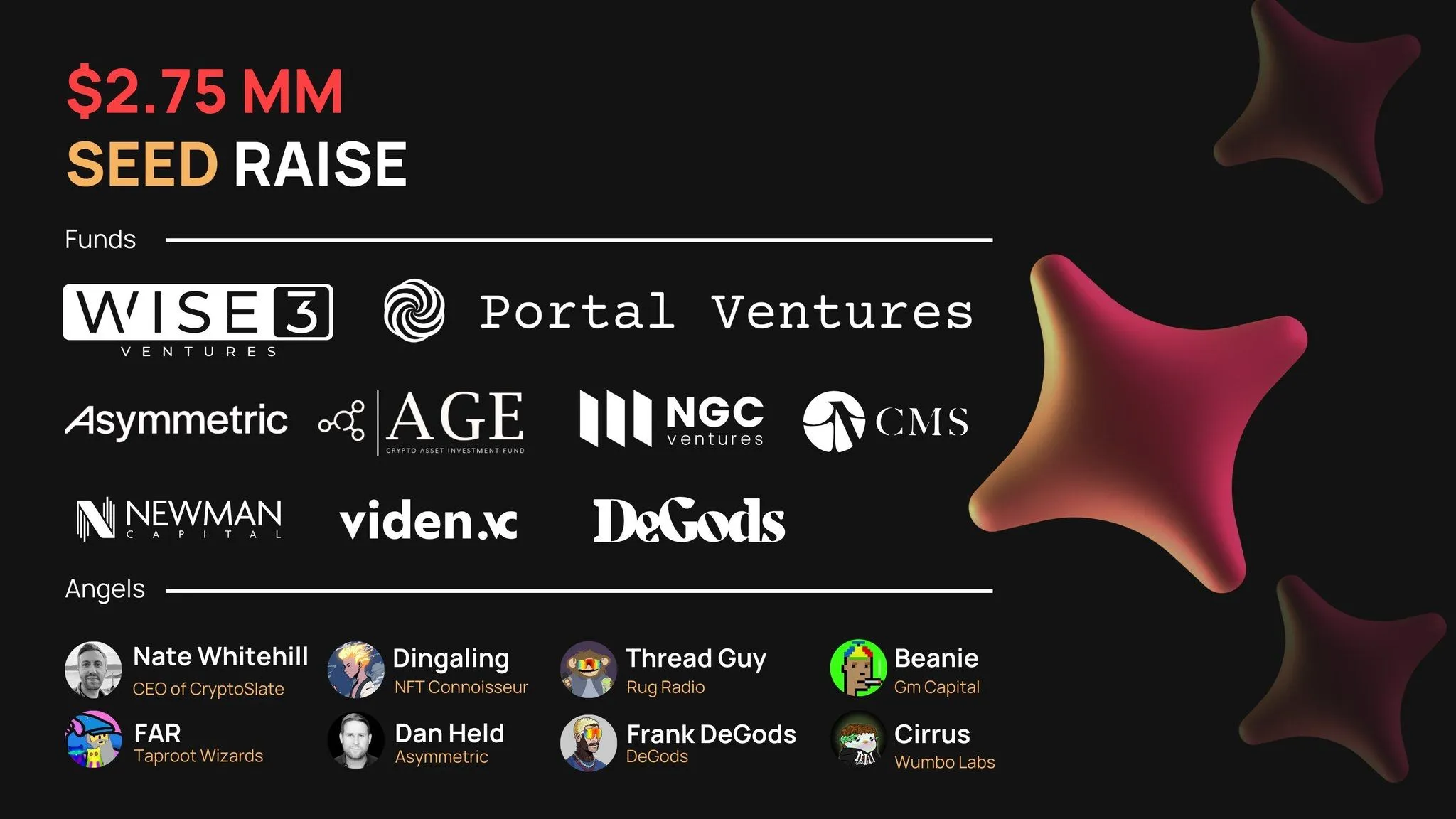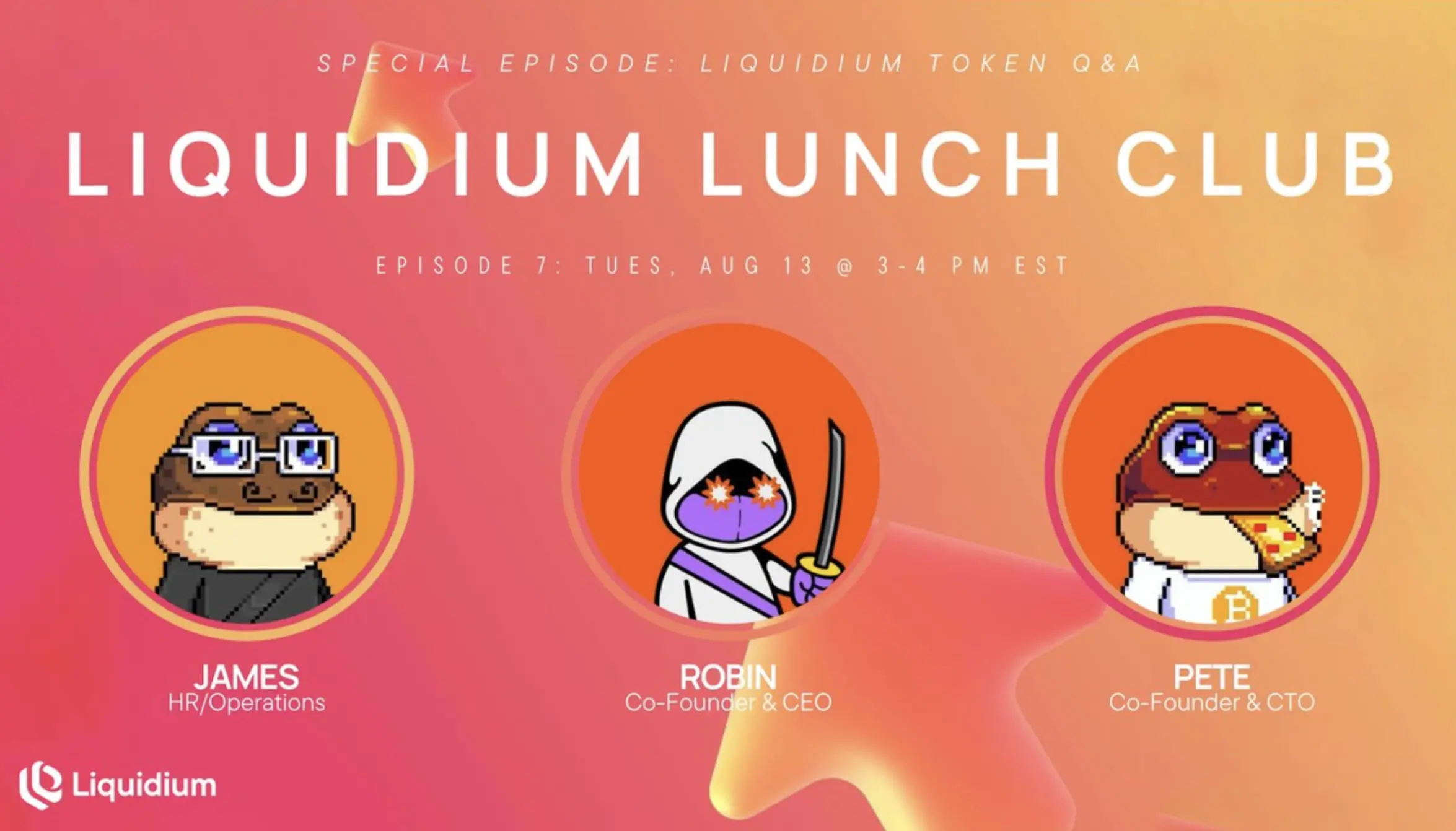Over a year has passed since I joined Liquidium, Bitcoin’s largest lending protocol. It has been an invaluable experience so far, learning what to do and what not to do in a startup. I thought I would share some insights from my journey so far.
Liquidium is a model startup
The fact is most startups fail, so to some, joining Liquidium at such an early stage was a bit of a gamble. However, for me, it was a calculated risk that's so far paid off. Throughout the hiring process, I realised it wasn't just about me being evaluated, it was also an opportunity to assess the company from my perspective. To join Liquidum I needed total conviction that it met the criteria I believed were essential for a successful startup:
- A real problem
- Users couldn't earn yield on their native Bitcoin.
- Users with valuable digital assets were looking to access liquidity.
- Concrete solution
- Bitcoin’s first lending protocol. Allowing lending of Bitcoin using fungible and non-fungible assets as collateral.
- Untapped market
- At this stage, Bitcoin’s DeFi market was still in its infancy but had the potential to be larger than the existing markets on other chains. We could also make direct comparisons to existing lending platforms on other chains, making it easy to quantify the opportunity.
- Liquidium also got thousands of users on the waitlist before launching, validating the demand.
- Scalable business model
- I loved how simple the revenue model was, just taking a % fee on the interest earned. This is in contrast to most crypto startups which either don't have a monetisation plan or have a very convoluted one.
- Strong founding team
- All domains were covered by the founders, having a CEO, CTO and CMO.
- Do they have solid investors
- Yes.
- Do they have that secret sauce
- Yes, although I can't reveal what it is.
Riding a rollercoaster
Working at a startup, especially in the crypto space, can be an intense experience compared to traditional jobs. The pace is relentless, and the workload can be overwhelming at times. I've personally gone through cycles of overworking, and finding a balance has been crucial for long-term sustainability.
However, this fast-paced environment is required for innovation. The pressure is always there as the runway (money from investors to sustain operations) isn't infinite and competitors could always be around the corner. So building the best product as fast as possible is a requirement. As our CEO Robin once requoted Reid Hoffman: “Starting a company is like jumping off a cliff and assembling the plane on the way down”. Ideally, you build the plane fast enough before finding the ground…

Prioritisation is the hardest problem to solve
Perhaps the most challenging aspect of working in a startup is deciding which features to prioritise. With limited resources and an abundance of ideas, we must carefully analyse which developments will provide the most significant quality-of-life improvements for our users or have the most substantial impact on increasing our volume.
This process involves deep dives into user feedback, competitive analysis and application analytics. Having Shudu (our analytics guru) join the team helped kick-start more reactionary development decisions. For example, we found that many borrowers would never have their loans started as the lenders were not countersigning. To combat this we implemented a time limit and multi-accept system that would make the lenders compete to get the loan first. This change had a measurable impact on the number of loans getting started.
There's also a constant tension between developing large, impactful features and maintaining regular visible progress. Opting for lengthy development cycles on significant upgrades can make users feel like we're slowing down, even when we're working harder than ever. The introduction of our governance token should help increase communication and progress with our community, as they can now vote on what the next development priorities are.
Importance of team composition
In a small startup, every team member plays a crucial role. A single bad hire can have drastic consequences, affecting not just productivity but also team morale and company culture. We've been fortunate, and frankly quite lucky, to have assembled a team of highly skilled and motivated individuals.
Having overseen some hiring processes since joining, I've learned that an adaptable skill set often matters more than industry-specific knowledge. Two of our engineering members come from completely non-crypto sectors. Not only have they quickly adapted to our industry, but they also bring fresh, unique perspectives that have proven invaluable. This diversity in background has enhanced our problem-solving capabilities and brought more innovative approaches to challenges.
Culture
Liquidum's culture has evolved into something pretty unique, and it's had a big impact on how we work. One of the coolest things is that your feedback is always taken seriously, no matter what position or department you're in. This means everyone is added to every department's Slack channel (there are a lot). It's not all serious business though, the vibe is pretty fun and lighthearted most of the time. Like most startups, your job title doesn't constrain you at all in terms of the value you can provide to the company. You end up doing a bit of everything, which keeps things exciting. There's also way less structure and oversight than you'd find in a traditional company. You're expected to deliver, but how you do it is up to you, no micromanaging. This freedom does require you to be self-motivated and ready to take initiative.
 Productive slack thread
Productive slack thread
Leadership in turbulent times
The crypto market's notorious volatility requires strong leadership, especially during downturns and times of uncertainty. For me, actions speak louder than inspirational speeches. Our founders consistently demonstrate unwavering conviction and consistency in pushing forward regardless of market conditions. I don’t even think Robin has an off button, so if I become a founder one day, I know who to look at for reference.
Don’t over glamorise fundraising
Most startups see fundraising as a source of validation when in reality the only validation should be from the growth of your product. In my opinion, it's very over-glamorised and far different from the movies. I saw this first-hand as the founders were raising for our seed round during the Germany offsite. The back-to-back meetings never ended, I’m sure they could do the pitch backwards if they had to. Having this new money in the bank can also pressure founders into expanding the team past an optimal level. After some deliberation, this is something we managed to steer clear of.

The importance of community building
One aspect I drastically underestimated in startups is the importance of building and nurturing a strong community and brand. At Liquidum, I have learned that community engagement is often as crucial as product development itself. We've invested considerable time and resources into fostering user connections, providing education, and offering robust support.
This community-centric approach has benefits:
- Enhanced user acquisition and retention.
- Valuable feedback for product development.
- Creation of brand advocates.
- Improved user experience and satisfaction.
Initially, I believed that a superior product alone would simply attract users. However, the reality is far more complex and a great product is just the foundation. I was always sceptical whether spending money on things like conferences would yield results, as it’s especially hard to track its impact. But over the long run, I think these expenditures have paid off, as Liquidium is now a household name in the Bitcoin DeFi industry.
 Liquidium Lunch Club is a live event covering the latest news and interacting with the community.
Liquidium Lunch Club is a live event covering the latest news and interacting with the community.
Staying up to date with the current tech
Staying ahead in the crypto space means constantly evaluating and integrating new technologies. While we'll soon give more details about upcoming projects, we're closely watching developments in cross-chain technologies. Projects like NEAR and Internet Computer (ICP) are opening up new possibilities for bringing Bitcoin to a more programmable level, which could dramatically expand the scope of what's possible in Bitcoin DeFi.
Conclusion
They say time flies when you are having fun, and this past year went by in a flash. I guess that's a good thing because finding a job that you enjoy can't be easy. When I joined as the first hire it was just me and the boys, but now Liquidium is expanding into its own entity. Looking forward to what it looks like in a year's time. Let’s go.